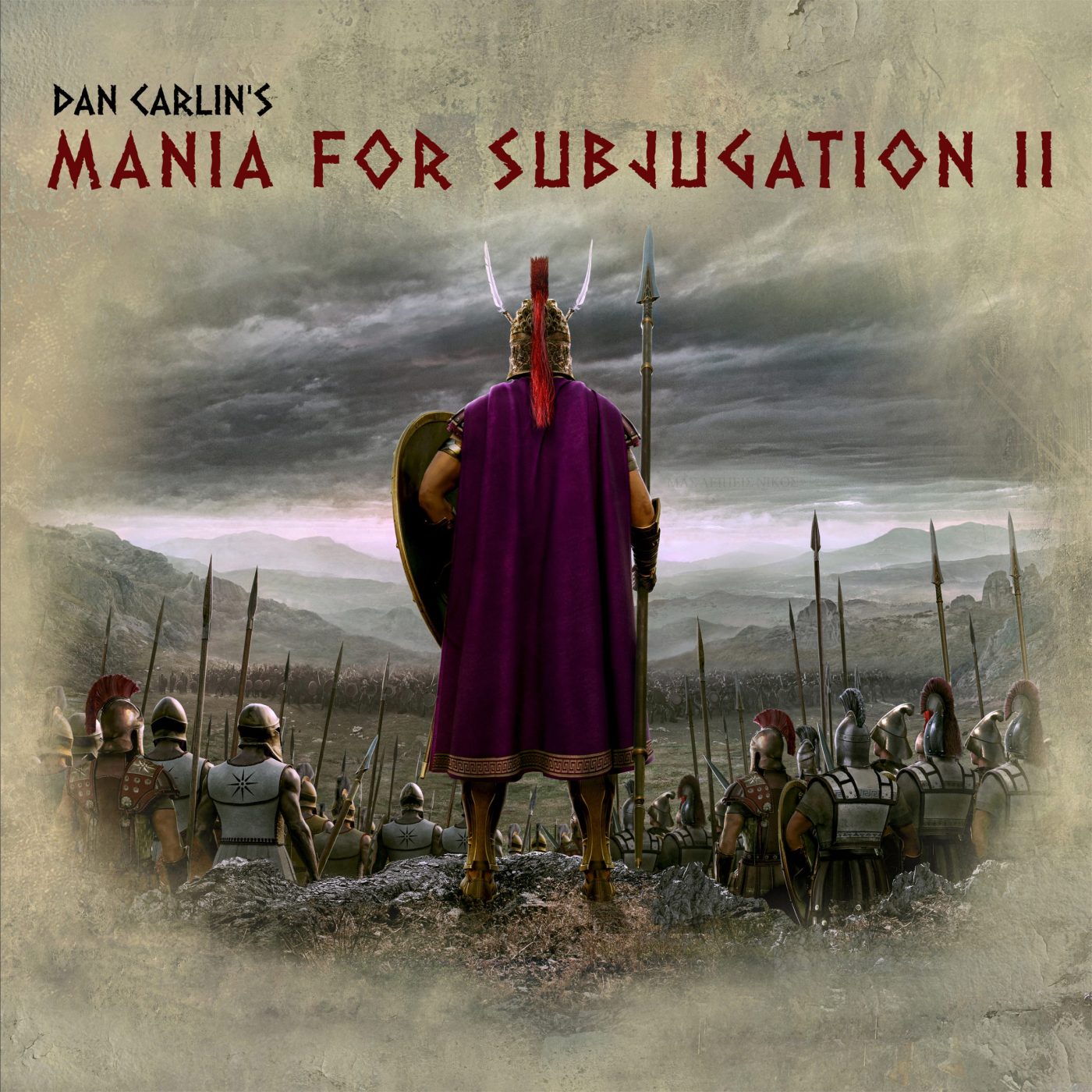
Show 72 - Mania for Subjugation II

Dan Carlin's Hardcore History
Deep Dive
Why did Alexander the Great's rapid rise to power after his father's assassination create a '9-11 moment' for Macedonia?
Philip II's assassination created a '9-11 moment' for Macedonia because the sudden loss of such a central figure, who held immense power and was the 'spider in the middle of the web,' left the kingdom in shock. The system wasn’t designed to function without him, leading to widespread uncertainty and fear. Alexander, who witnessed his father's murder, inherited this chaotic situation, with threats emerging from all directions, including neighboring tribes and internal factions vying for power.
What role did psychological warfare play in Alexander's military strategy during the Theban revolt?
Alexander used psychological warfare to intimidate the Thebans by demonstrating his army’s discipline and strength through silent, coordinated drills. This display of military precision, combined with the sudden appearance of his forces outside Thebes, caused panic among the Thebans. The psychological impact of Alexander’s tactics, including his ability to wrong-foot his enemies with speed and unexpected maneuvers, often led to their demoralization and collapse before the actual battle even began.
What was the significance of Alexander's crossing of the Danube in terms of his military reputation?
Alexander's crossing of the Danube was significant because it demonstrated his audacity and strategic brilliance. He transported thousands of troops and horses across the mighty river in a single night, surprising the Getae tribesmen who thought such a feat impossible. This move not only secured his northern borders but also sent a clear message to other tribes about his military prowess and determination. It was a preemptive strike that solidified his reputation as a commander who could achieve the seemingly impossible.
Why did the destruction of Thebes have such a profound impact on the Greek world?
The destruction of Thebes had a profound impact on the Greek world because it was one of the most prominent and historically significant city-states. Its complete annihilation, including the slaughter of over 6,000 Thebans and the enslavement of 30,000 others, sent a shockwave through Greece. Alexander’s decision to destroy Thebes served as a brutal example of the consequences of rebellion against Macedonian rule. It instilled fear and forced other Greek city-states to submit, ensuring Macedonian dominance in the region.
What were the key factors that allowed Alexander to consolidate his power so quickly after his father's death?
Alexander consolidated his power quickly due to a combination of decisive action, strategic alliances, and ruthless efficiency. He immediately secured the support of key Macedonian generals like Antipater, who backed his claim to the throne. Alexander also moved swiftly to eliminate potential rivals, including executing those involved in his father’s assassination and sending assassins after others. His ability to quell internal dissent and external threats, such as the Thracians and Illyrians, demonstrated his military genius and solidified his rule.
Shownotes Transcript
Is it safe to hand control of the deadliest army in the world to a 20-year old? If you are Thracian, Triballian, Illyrian or Theban, the answer is definitely no. Alexander becomes king and fights off threats to his rule in all directions.